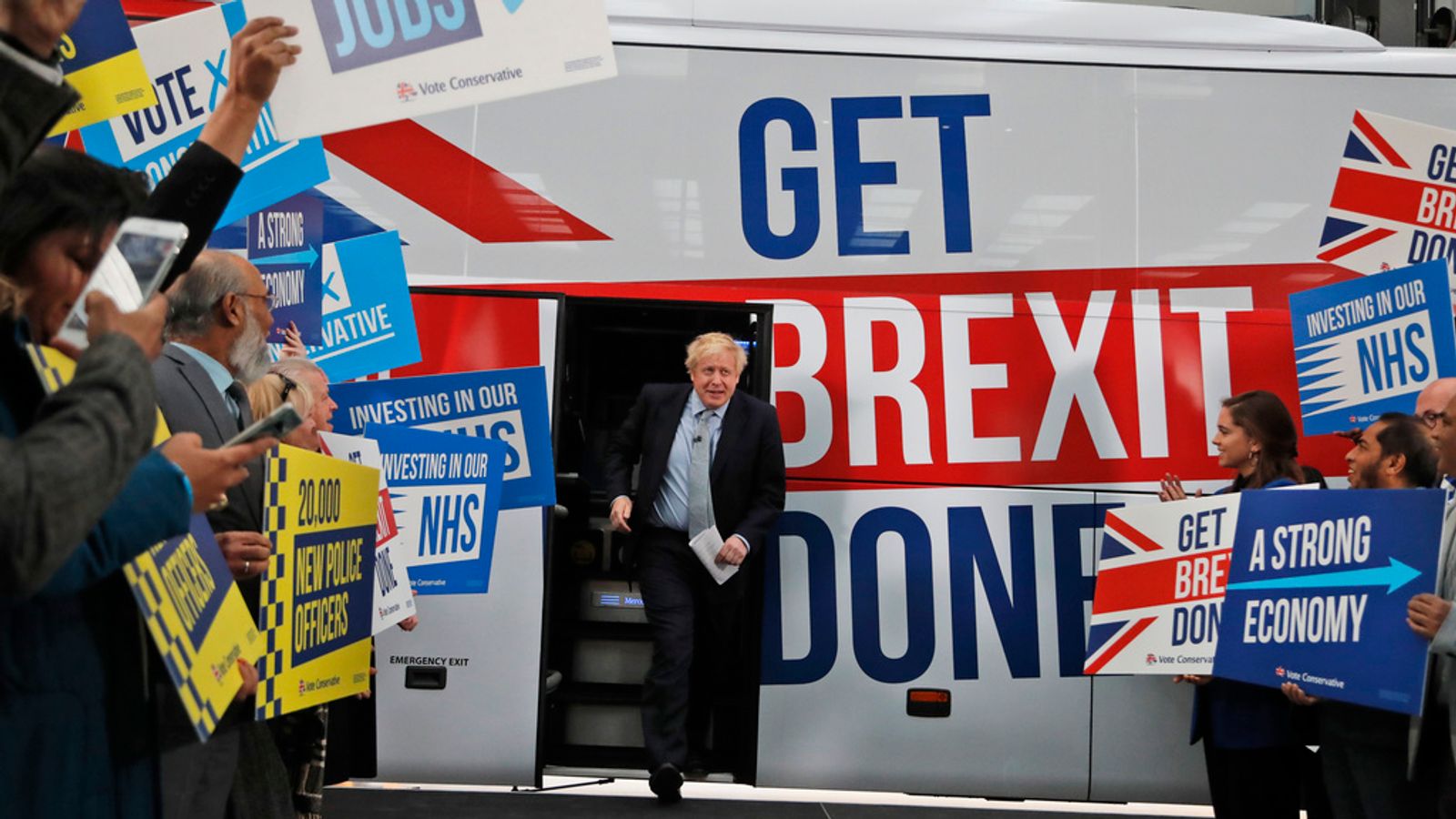British businesses have blamed “mind-boggling” bureaucracy on a £3bn-a-year hit to food exports since Brexit.
A new report by the Centre of Inclusive Trade Policy (CITP) has found that the shipping of UK food and agricultural products to the EU has fallen by more than 16% on average across the three years since Britain left the single market.
Politics Live: Reeves refuses to rule out more tax rises – just one week after she did
This equates to a £2.82bn a year drop in produce travelling from Britain to the bloc.
While the fall has coincided with the war in Ukraine and the COVID pandemic, the exports between the UK and EU “demonstrate no recent signs of regaining previous levels”, the report said.
Industry experts blamed the decline on added layers of regulation required to send products to Europe since Brexit.
Before the referendum, there was frictionless trade between the EU and the UK.
But at the end of the Brexit transition period in January 2021, the UK became regarded by the EU as a “third country” in trading terms, requiring physical border checks and health certificates on agri-food products travelling from Britain.
‘Absolutely horrendous’
Sean Ramsden, the CEO of wholesaler Ramsden International, told Sky News he has had to hire nine extra people to deal with “horrendous” new paperwork requirements.
He’s also had to shrink the range of his products, put up costs and extend the lead time to ship them over – from about three days to three weeks – in order to comply with the additional checks and bureaucracy.
“The EU went from being the easiest market in the world to quite literally the most difficult to get food into,” he said.
“The regulation work involved, the complexity is mind-boggling to the point that it’s significantly shrunk our European business. We are trading less than half what we previously had.
“There’s not anybody in the food industry that will not say Brexit is the biggest impairment to export sales… it’s been absolutely horrendous.”
Labour’s manifesto promised to improve the UK’s trading relationship with the EU through a veterinary agreement, which it says would prevent unnecessary border checks and help tackle the soaring cost of food.
A report from Aston University found that such an agreement could boost agri-food exports from the UK to the EU by 22.5%
However, ministers have been tight-lipped on what, if any, progress has been made on this front.
Read More:
Why cheese, fish and flowers could all soon cost more because of new Brexit rules
New report suggests UK £311bn worse off by 2035 due to leaving EU
EU imports also at risk
The CITP said the first step in negotiations should be to take stock of the divergence that has taken place since Brexit, to bring about closer alignment.
While the EU has brought in stricter standards in most areas that the UK has not matched, including pesticides and hazardous substances, the UK has introduced stricter animal welfare standards, the report found.
Marco Forgione, director general at The Chartered Institute of Export & International Trade, told Sky News that food produced in the UK and EU is generally safe and “we need to build trust in the supply chain so there are no concerns about the quality of the produce”.
He said: “We are all facing ongoing challenges in regard to the global supply chain. For two trading nations so close with such similar levels of standards, we should ease facilitation where possible.”
Mr Forgione warned the problems will soon be mirrored on the EU side of things after equivalent border checks on imports from Europe were imposed.
The new customs rules were delayed five times because of concerns about disruption and increased food prices.
A phased introduction began in January, with industry chiefs warning it would likely “add billions” to consumer bills.
👉 Listen to Sky News Daily on your podcast app 👈
“We have had conversations with EU producers considering withdrawing from the EU market because of the costs,” Mr Forgione said.
“It’s not an insignificant issue.”
A government spokesperson said: “We have been clear that a veterinary or SPS agreement could boost trade and deliver significant benefits on both sides.
“Final arrangements are subject to negotiations but the UK and EU have similarly high standards. “

